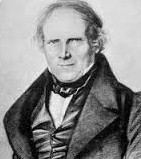Vi
Viereck, Louis (1851-1921)
German Social-Democrat. At the end of the 'seventies an adherent of Dühring. From 1880 he edited the Süddeutsche Post [South German Post] in Münich ; this was suppressed in 1884. At the end of the 'eighties he emigrated to America where he left the labour movement. During WWI he was a social chauvinist and carried on propaganda for Germany in America.
Viglietti, Daniel (1939-2017)
 Born in Montevideo, Uruguay to a musical family, Viglietti recorded his first album of folksongs in 1963 and quickly became one of the leading voices of the “Nuevo cancion protesta” movement in Latin America, his music largely dedicated to the (armed) struggle of the people of his continent. Forced into exile in 1973, first to Argentina and then to Paris, he returned to Uruguay in 1984.
Born in Montevideo, Uruguay to a musical family, Viglietti recorded his first album of folksongs in 1963 and quickly became one of the leading voices of the “Nuevo cancion protesta” movement in Latin America, his music largely dedicated to the (armed) struggle of the people of his continent. Forced into exile in 1973, first to Argentina and then to Paris, he returned to Uruguay in 1984.
Vilner, Meir (1918-2003)
Long-time Israeli Communist leader Meir Vilner was born Ber Kovner in Vilna. Originally active in Socialist-Zionist circles, he joined the Polish Communist party in 1938. He went to Palestine to study at the Hebrew University (where Martin Buber was one of his professors), but the Nazi invasion prevented him from returning to Vilna. He joined the Palestine Communist Party in 1940, and very quickly was made Secretary of the Jerusalem section of the Party, where he worked closely with Arab comrades.
He sat on the Jewish community’s council before the establishment of the state of Israel and, in 1948, was a signatory of the Israeli Declaration of Independence. The USSR had supported the establishment of the Jewish state and, for Vilner, it was also a matter of freeing a British colony. As he later said, the document, because it was written in conformity with UN Resolutions, “calls for the creation of an independent Arab state. So it means a Jewish state and an Arab state. That is what we signed.”
He was a member of the Knesset from 1949 — 1990, and while there was a tireless advocate for Palestinian rights. His report on the Israeli army’s massacre at Kufr-Qassem resulted in 11 convictions for murder. From his seat in the Knesset he also condemned Israel for attacking Egypt, Syria and Jordan in June 1967, a stand that earned him a knife attack by a member of the right-wing Herut movement.
In the mid-1960’s the Israeli Communist Party split along essentially ethnic lines, with the Moshe Sneh — Shmuel Mikunis group, which was accused of Jewish nationalism, taking most of the Jewish members, and the Vilner — Tawfiq Toubi group taking most of the Arab members. The Sneh group was given the right to use the Communist Party name, while the Vilner group took the name New Communist List (Rakah). Rakah remained staunchly pro-Soviet, and the CPI became a left-wing adjunct of the socialist Zionists, until it eventually dissolved.
Vilner was Secretary General from 1965 — 1990, but in his last years was marginalized within the party, when the journal he edited was closed down and he was excluded from the Central Committee.
When he died he was the last living signatory of the Declaration of Independence.
Summing up his political life, and his party’s role in Israeli society, he said: “I have always stressed that we are defending the rights not only of the Palestinian people but of the Israeli people. The expansionist policies endanger Israel. In fighting for a just peace, we are the real patriots.”
Villermé, Louis-René (1782-1863)
 Though the German physician Rudolf Virchow (1821-1902) is usually credited with being the founder of social medicine, Villermé was the actual father of the field, working decades before Virchow. Villermé’s worked focused on the ill effects of the living and working conditions of workers, children, sailors, and prisoners, and his reports resulted in laws limiting child labor and ensuring workers healthy housing.
Though the German physician Rudolf Virchow (1821-1902) is usually credited with being the founder of social medicine, Villermé was the actual father of the field, working decades before Virchow. Villermé’s worked focused on the ill effects of the living and working conditions of workers, children, sailors, and prisoners, and his reports resulted in laws limiting child labor and ensuring workers healthy housing.
See Villermé Archive.